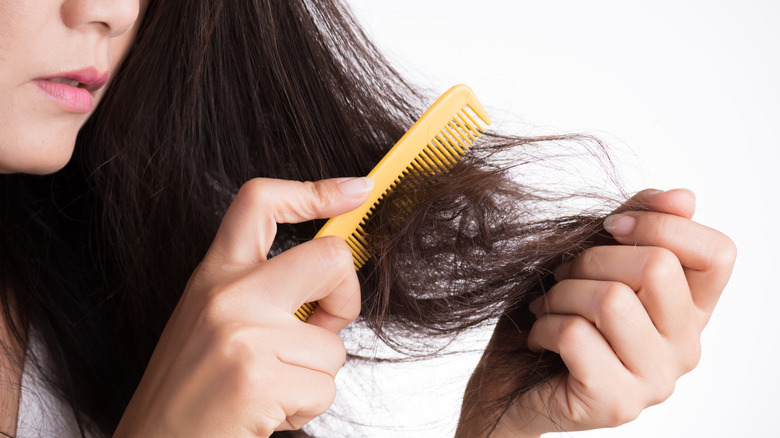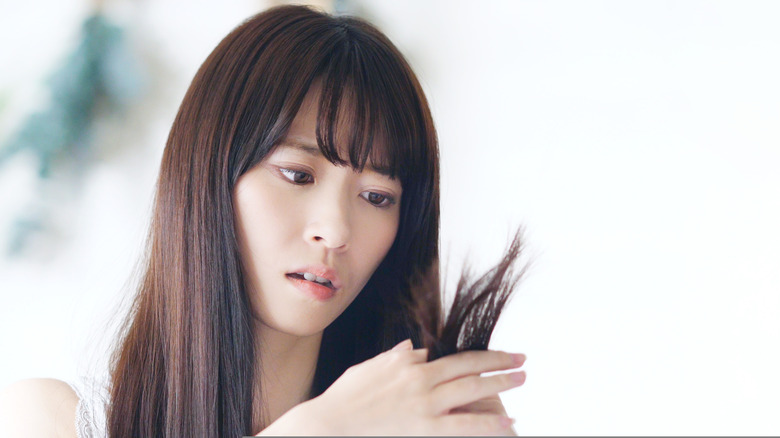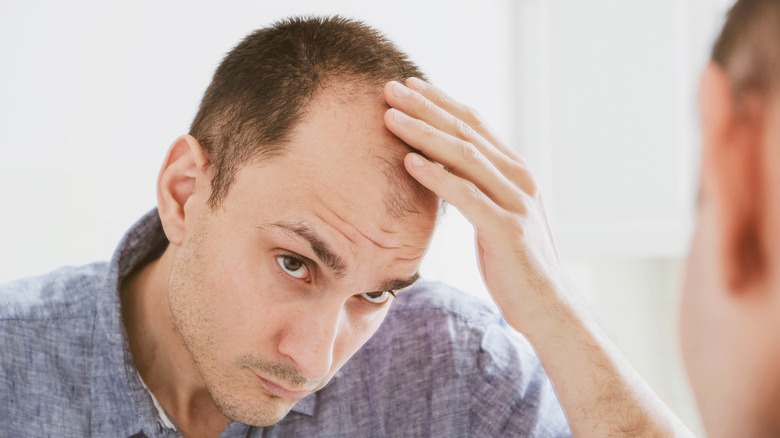There Are 8 Types Of Hair Damage: Here's What You Need To Know
According to Headcurve, there are eight main ways that hair can be damaged. That may sound scary, making a person want to shave their head in order to avoid it all, but there is good news: There are ways to prevent and even correct these issues.
First up, there is harm caused by styling, such as over-processed hair, heat, chemicals, and even brushing and detangling. Data shows that a woman may spend about $260 each year at hair salons, compared to a man spending only $150 (via Towards Data Science). The dyes and bleaching (two of the most common treatments) that contribute to this higher number are popular but harmful, as well.
Hair stylist Anna Jackson recommends not using heat every single day, choosing the right tools, and using protection (via StyleCaster). Furthermore, be kind and gentle with those lovely locks, giving them breaks from colors, ponytail holders, and blow dryers. Your hair — and your checkbook — will thank you.
Split ends are the most common type of hair damage
Split ends, as stated by Headcurve, come about over time, but their development can be sped up when more destruction happens. Therefore, it is important to use care when working with hair, as everything from heating tools to towels after showers can cause harm. Some tips for easing the pain of split ends include utilizing a deep conditioner and a satin or silk pillowcase.
The sun hurts tresses, too, so avoid too much exposure. Signs of sun damage are breakage, hair-color dissipation, dullness, dryness, and frizziness, as reported by Profashion.
While it seems like washing hair would be beneficial, there is such a thing as over-washing, and there is the chance of hurting hair with hard water. In cities, in particular, water may contain high counts of silica, magnesium, and calcium, leading to dandruff and hair loss. A solution here would be a water softener or a clarifying shampoo.
Even stress can negatively affect hair
Did you know that hair can also be stressed? When a person is feeling anxious or overwhelmed, their mane may suffer, as a final common form of damaged hair is overstressed hair.
According to Viviscal, a person may lose their hair weeks or months after going through a divorce or a death, or this could happen because of hormonal changes, an illness, or a diet lacking the proper nutrition. This is a vicious cycle, as, for instance, not eating well can lead to more stress, while more stress can lead to a poor diet. All the while, the mind and body, including the hair on the top of the head, are suffering from the trauma.
That being said, it is vital to laugh, mediate, listen to music, move your body, and surround yourself with loved ones. This will calm you, cheer you up, and, in addition, be good for your luscious locks!


